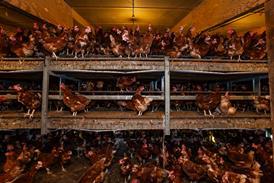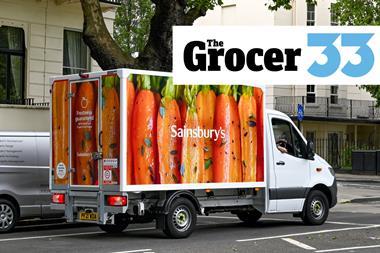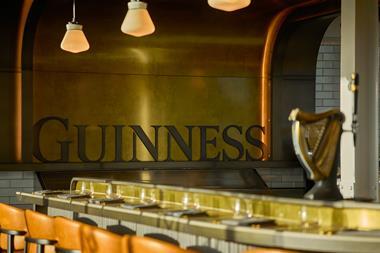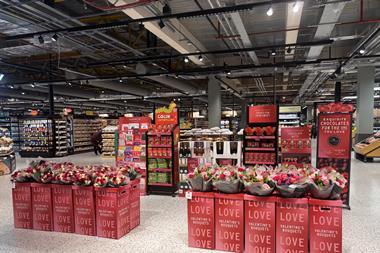Multiples popped their corks in the c-store sector in Millennium year, but the major symbol groups carried on partying
The multiples' headlong rush into the already crowded c-store sector continued with Sainsbury securing a deal with Shell to develop its Local stores on forecourts and the launch of Woolworths General Store. However, Sainsbury's new boss Peter Davis dismissed his predecessor's over-ambitious target of 200 stores by 2003.
Sainsbury's Local even emphasised its convenience credentials by joining the Association of Convenience Stores, much to the annoyance of some of the association's independent members.
But despite intense price pressure from the superstores and expansion by Sainsbury Local, Tesco Express, Safeway/BP, CWS, United Norwest Co-op and Budgens, the major symbol groups all managed to add members. Londis entered Scotland in May, picking up 65 new recruits by the end of the year and pushing total membership above the 2,000 mark for the first time. Spar set up the Multiple Retail Group to exploit the buying power of the most disciplined members among its 2,700 stores and announced it was targeting city centres, railway stations and airports for potential sites.
At the end of the year Costcutter was also approaching a membership landmark, predicting it would recruit its 1,000th member during February 2001. Budgens added its name to the choice of symbol groups for independent retailers, launching Budgens Local. Chief executive Martin Hyson set a modest target of 50 members within two years but when Seamus Scally's Musgrave took a stake in Budgens he signalled a possible increase.
T&S continued to assert its supremacy over the c-store multiple sector and snapped up the 100-store Day and Nite group and, having purchased M&W and One Stop in 1997 and 1999, looked like running out of large groups in England and Wales to buy. In January Alldays fascia came down from nearly 200 Total-Fina forecourt stores, as it lost the supply deal to Key Lekkerland. By the end of the year it had aqcquired all its 760 stores from its regional development companies, but with a market capitalisation of less than £10m and debts of £175m it seemed certain to be sold. Sainsbury, CWS and T&S were all weighing up the options.
In Scotland, Morning Noon & Night developed a new format and accumulated 41 stores and a turnover of £30.1m since its formation in 1991.
Independent stores in towns and villages faced tough trading conditions with issues such as the modernisation of the Post Office, uncertainty over supply of magazines and newspapers, and competition from out of town stores. Rural shops formed the Rural Shops Alliance for a powerful, united voice in advance of the government publishing its Rural White Paper.
{{NEWS }}
Close menu
- Home
- Retail & Wholesale
-
Products & Suppliers
- Back to parent navigation item
- Products & Suppliers
-
Product Categories:
- Back to parent navigation item
- Product Categories:
- Alcoholic drinks
- Bakery
- Cereals & breakfast
- Cheese
- Chicken & poultry
- Chocolate
- Confectionery
- Crisps, nuts & snacks
- Dairy
- Fish
- Fresh produce
- Frozen
- Household
- Meat
- Own Label
- Sauces & condiments
- Seasonal
- Soft drinks
- Vaping
- Vegan & plant-based
- World foods
- Suppliers
- People
- Reports & Data
-
Topics A-Z
- Back to parent navigation item
- Topics A-Z
-
Popular topics:
- Back to parent navigation item
- Popular topics:
- Cost of living crisis
- Crime
- Deposit Return Schemes
- Finance
- Government & Regulation
- Health
- Inflation
- Loyalty
- Marketing
- Mergers & Acquisitions
- New Product Development
- Sourcing
- Supply chain
- Sustainability & environment
- Technology
- Ultra Processed Foods
- Vaping
- A-Z all topics
- Content by type:
- Events
- Ask iA (beta)
- Subscribe now
Sign in to comment on this article
Not logged in before? Register for FREE guest access today.
You will be able to:
- Read more stories
- Receive daily newsletters
- Comment on stories
Advert

















No comments yet